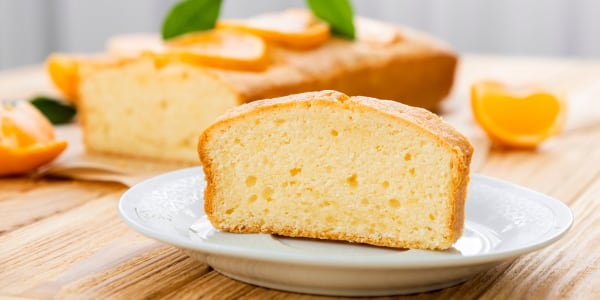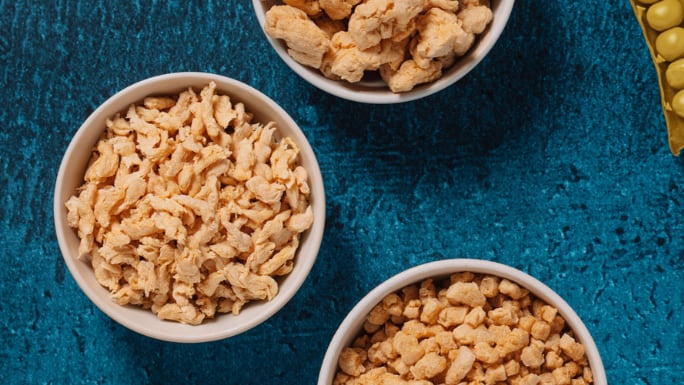With the bird flu crisis putting unprecedented strain on US egg supply chains, food innovators are engineering alternative solutions that deliver functionality, resilience, and sustainability.
Eggs have long held a non-negotiable position in food manufacturing. They bind, leaven, emulsify, and enrich – offering a rare complexity that makes them difficult to replace. But today, the pressure to find viable alternatives has never been greater.
In US, the food industry is navigating a perfect storm: soaring egg prices, supply volatility caused by avian influenza outbreaks and shifting consumer values around sustainability and animal welfare.
According to the U.S. Department of Agriculture, approximately 163 million chickens, turkeys and other birds have either died or been culled due to bird flu since the outbreak began in 2022.¹ The crisis reached a new peak in January 2025, when 19.5 million egg-laying hens were culled – the highest monthly figure since 2022.¹
Against this backdrop, egg alternatives are no longer niche solutions, they are becoming foundational to the future of food manufacturing. The global egg replacer market will exceed an estimated $2.1 billion by 2030, growing at a CAGR of 6.6%.²
But this shift is not driven by cost alone. Food producers are also seeking cleaner labels, allergen-free recipes, and ingredient systems less vulnerable to global disruptions. The challenge? Achieving all this without compromising on the sensory and functional roles eggs play in recipes.
Value-added solutions for partially or fully replacing eggs
Leading the charge is HIFOOD, a highly innovative brand specialized in the research, development, and production of ingredients of natural origin – now part of CSM Ingredients group. With deep expertize in plant-based systems and value-added solutions, the whole group is helping lead the evolution toward reduced-egg and egg-free formulations.
“Creating solutions that allow the food industry to decrease its reliance on eggs is no longer an option, it’s a matter of necessity,” says Christian Sobolta, Managing Director at CSM Ingredients group.
“The mass culling of animals, the economic pressure on producers and the uncertainty facing consumers are all signals that the current system is unsustainable.
“We need to rethink how key ingredients are sourced and used – developing smarter, more sustainable and more resilient alternatives able to serve the entire supply chain,” adds Sobolta.
In order to help the industry become more resilient and sustainable, HIFOOD developed FAB SYSTEM 131. This is a powder-based, plant-based solution developed to reduce eggs in bakery recipes by up to 50%, a percentage that can increase to a full 100% replacement in the case of cookies. Based on vegetable raw materials of natural origin, 1lb of FAB SYSTEM 131 can replace up to 31lbs of eggs.
This modular, clean-label ingredient is free from common allergens (no eggs, soy, or milk), GMO-free, and certified kosher and halal – making it ideal for modern, mindful production environments. It also offers a significant reduction in refrigeration needs and inventory control benefits due to its shelf-stable powder form.

From loaf cakes and muffins to cookies and crème pies, FAB SYSTEM 131 supports a wide range of bakery applications, maintaining taste and texture while slashing egg use and supply chain risks.
A dual approach
What sets HIFOOD apart in this field is its dual-track research and development strategy, aimed at addressing both the immediate market demands and long-term scientific frontiers of egg substitution.
In the short term, its work revolves around smart formulations that replicate the functionality of eggs using plant-based building blocks like fibers (e.g. flaxseed), wheat and yellow pea proteins and specialized enzymes.
These components are optimized based on single applications as eggs play different roles and bring different attributes in different applications. For example, emulsification is key in sauces, while in bakery eggs are key to bring structure, aeration, and thermocoagulation.
This application-driven approach is made possible by the deep expertise and specialized knowhow of HIFOOD’s teams, where master bakers, pastry chefs and gastronomic scientists all work closely together with product developers to fine-tune ingredient interactions.

In the long-term, as part of CSM Ingredients Group, HIFOOD is also exploring truly radical solutions. One standout initiative is the collaboration between CSM Ingredients group and the biotech startup PoLoPo, focused on producing ovalbumin-like proteins from a specific variety of potato through precision biotechnology. This isn’t about imitating eggs – it’s about replicating the functional molecules found in egg whites, using plants.
“In the long term, this approach could allow us to move beyond mimicry and actually reconstruct the most complex protein systems found in eggs,” says Emanuele Pizzigalli, Chief Research and Innovation Officer at CSM Ingredients group.
“We’re not just trying to replicate functionality – we’re trying to reproduce the molecule itself, using biotechnology rooted in the plant world. That’s what makes this a game changer: it’s a precise, clean and scalable path toward truly functional egg alternatives that don’t rely on animal agriculture.”
Building a portfolio of egg alternatives
The egg reduction strategy of CSM Ingredients group, strongly rooted both in HIFOOD’s innovative spirit and in CSM Ingredient’s strong craftmanship heritage, is broad in scope and includes various solutions for batters, glazes, sauces, and more – each tailored to specific industrial needs.
For instance, Egg ‘n Easy is a range of egg replacement solutions that is complementary to FAB SYSTEM 131 and that covers a vast number of bakery applications – including sponge cakes, brioche, waffles, and pancakes.

In addition, it is also possible to substitute eggs when glazing bakery goods. Applied before baking, Magic GLAZE is a vegan-friendly, egg-free alternative to traditional egg washes that creates a golden sheen and crispy finish – without the hygiene or shelf-life concerns typical of eggs. It is also available in a freeze-thaw stable version, making it ideal for frozen baked goods that require consistent appearance post-thaw.
CSM Ingredients’ portfolio also includes solutions ideal for culinary applications such as Veganeez, a plant-based system developed for the cold preparation of sauces and dressings, made entirely from natural ingredients and free-from GMOs, gluten and common allergens.
Veganeez offers a neutral color and customizable flavor base, ideal for chefs and developers seeking high-performance alternatives to egg-based emulsifiers.
These solutions aren’t just stand-ins for eggs – they’re systems engineered to ensure texture, taste, visual appeal and production efficiency across product categories.
Looking ahead: Less egg, more resilience
The egg shortage crisis is not just a supply chain issue, it’s a turning point. It underscores how dependent modern food systems are on a narrow set of ingredients, and how quickly that dependency can become a liability.
Solutions like the FAB SYSTEM 131 offer a glimpse into a different kind of future – one where cost-effective, plant-based and functionally robust alternatives make the food system more adaptable, inclusive, and sustainable.
HIFOOD’s approach recognizes the complexity of the egg and seeks to meet it with a broad range of solutions, ranging from application-driven mimicry to long-term molecular precision, shaping the path forward in a way that is grounded in both innovation and real-world practicality.
As manufacturers look to resist the next wave of ingredient disruptions, the companies that can offer versatile, science-backed and scalable solutions will be the ones best equipped to lead. And it may be those companies willing to rethink even the most fundamental ingredients that help write the next chapter of food evolution.
References



